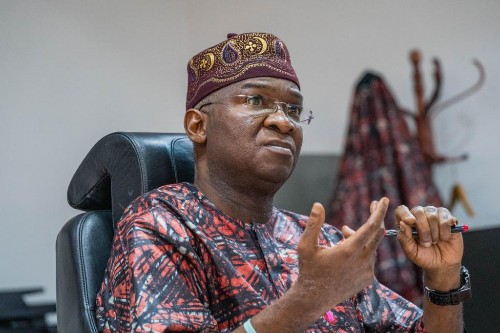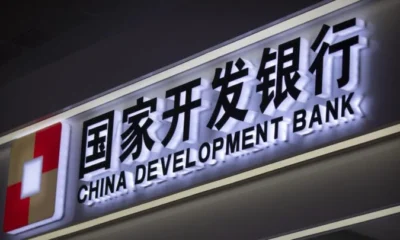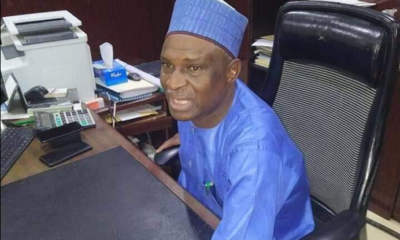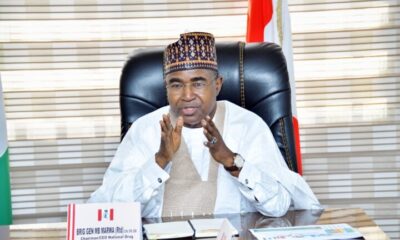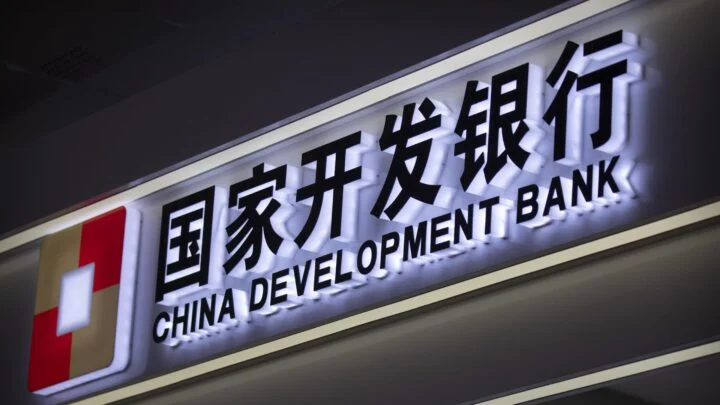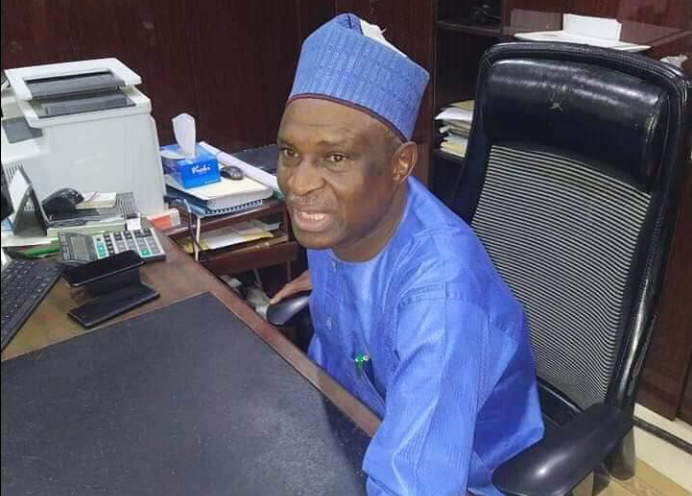Turning 60 is a significant and special milestone in the life of any mortal. Depending on the celebrator, a gaudy or godly celebration is permissible to mark the occasion. Former U.S. President Barack Obama turned 60 in August 2021. This was when the world was still grappling with the aftershocks of the Covid-19 pandemic with the attendant lockdowns and social distancing. For an otherwise modest and restrained person, Obama reckoned that he could only be 60 once in this lifetime.
Despite the hoopla that trailed the announcement of his 60th birthday party, which necessitated a ‘scaled back’ guests list, Obama went ahead to have a ball and a blast with his starry circle of guests including Beyonce, Oprah Winfrey, Stephen Spielberg, George Clooney, and Erykah Badu among other A-listers and Hollywood heavyweights. Well, Covid-19 is now a thing of the past or so.
Yet, the latest inductee into the sexagenarian club, Babatunde Raji Fashola (SAN), the immediate past Minister of Works and Housing, is not ever likely to throw a party. Fashola turned 60 Wednesday, June 28. Yet, he does not believe in the fanfare and pomp and circumstance of birthday celebrations.
Ten years ago when he turned 50, aides and associates fell over themselves to throw a jaw-dropping party for him. When he got wind of it, he called it off. Rationalising this in a dated interview, he said, “By nature, I am not a ceremonious person. I don’t like all the noise and partying. When I saw all the plans going on for my 50th, I said no. If this is my day, then those who really love me should allow me to do it the way I want to. I have told my aides how I feel about this whole 50th birthday celebration. I asked them if governors in other countries don’t have their birthdays and is it usually in such a loud way and manner. If I do it my own way it won’t cost me that much to receive my visitors. I funded my 40th birthday when I was Chief of Staff and it cost me so much. I am not quite sure I can do the same now.
“As a governor, it will cost me more. I am not sure I want to spend that kind of money on parties. And to tell you the truth, the idea that probably I will have a birthday at tax payers’ expense is something that does not go down well with me and it’s only for 24 hours. So I am going to have a very quiet and simple day with close friends and family.”
That is vintage Fashola! He exemplifies a successful outlier in Nigerian politics in many ways. Indeed, it seemed just like yesterday that a suave and smooth-talking 43-year-old lawyer and then Chief of Staff to former Governor Bola Ahmed Tinubu sauntered into public consciousness aspiring to succeed his boss as governor of Nigeria’s most important state. Until then, he was relatively unknown in the political calculus of the state. How could Tinubu have supported the little-known lawyer, a Senior Advocate of Nigeria though, ahead of more formidable politicians? Many wondered. Tinubu stood his ground. With the benefit of prescience, he had seen in the University of Benin Law graduate what many did not see. As God would have it, the good people of Lagos State voted massively for Fashola in the 2007 governorship polls. It was only a matter of time before the whole world started seeing in Fashola what Tinubu had seen.
Fashola would prove to be a different kind of governor. Gifted with an unnerving self-confidence and a nonpareil oratorical skill, Fashola was a breath of fresh air – youthful, measured, and mild-mannered. As governor, he was prudent yet, prodigious; and painstaking but proactive. The Lagos that Fashola met needed rejuvenation and resurgence and he diligently and fearlessly went about these.
One recalls with nostalgic flourish his cleansing of Oshodi, until then a deplorable, seamy underworld of all criminal activities known to humanity. And the hotbed of avoidable traffic gridlock. By the time Fashola divested Oshodi of its infamous toga, it became a marvel, a sedate thoroughfare with orderly traffic. That was all he needed, among other achievements in the early years, to tell Lagosians that it would not be business as usual for his administration.
During his fast-paced, work-filled, and praise-worthy odyssey as helmsman of Lagos State, Fashola evolved as an administrator par excellence. He also emerged as one of those rare breeds who rule their world and are not bound by a time clock; that group of people who see failure as a launch pad to the success that they either have achieved or seek to achieve. Nothing sets them in a bootstrapping mood like setbacks and challenges.
Their resoluteness when plights and ordeals rear their ugly heads is a lesson in resilience. Fashola’s handling of the Ebola scourge in 2014 comes to mind. Even when the tides appear to be rising against him, Fashola is never to be underrated. He is like a phoenix that rises from the ashes of tribulation to the peak of success against all odds. He is also driven by the belief that a man’s reach should always exceed his grasp, which is why he reaches for the moon, knowing that if his grasp missed its cusp, his hands may land on the stars.
Through the rough and tough times, the frustrating times of enlightening people about why certain policies or decisions had to be taken; why, for instance, Okada had to be banned on major highways to reduce the incidence of accidents on Lagos roads despite the concomitant loss of jobs; banning roadside trading; and the labyrinthine tax system among others; Fashola held his head high.
He turned Lagos around, re-engineered its economy, making it one of the fastest-growing in the continent; combated the outbreak of the Ebola Virus Disease like a Trojan in 2014; soothed the sorrows of people during adversities; built them affordable homes; and constructed new roads where there were none among other success stories.
He always held that governance should be about the good of all, not a negligible section of the populace. Thus, by the time the All Progressives Congress, APC, came on board in 2014, Fashola unwittingly became its poster boy. And he parlayed his star power for the gains of the APC in the presidential and governorship elections in 2015.
In the first coming of President Muhammadu Buhari, Fashola was, unsurprisingly, appointed the Minister of Power, Works, and Housing, making him a Super Minister of a sort; a primus inter pares among ministers. Four years after, he was reappointed by President Buhari as Minister of Works and Housing, which undergirds the president’s unflinching belief in his capacity to deliver. In all these illustrious positions, he left indelible footprints of achievements that will be the high water mark that subsequent occupiers would be measured by. Say what you will of former President Buhari, a discerning and dispassionate majority believes that no administration in the history of Nigeria’s existence revamped national infrastructure as much as President Buhari. Fashola superintended that ministry!
Almost two decades after his first public office appointment, Fashola has become one of Nigeria’s most adored politicians of his generation. The occasion of his 60th birthday touches a personal chord in some of us who saw him work at close quarters in those early, tentative days; how he surmounted some of the debilitating challenges that confronted an emerging mega city like Lagos; showing concern and compassion for everyday Lagosian, and how he set Lagos on the path of progress and prosperity.
We saw a devoted and hands-on family man who never shirked his filial and paternal responsibilities notwithstanding his punishing schedule. As his ‘aburos’, we benefitted immensely from his well of wisdom and encouragement which is why he quadruples, for many of us, as a role model, leader, mentor, and friend. Personally, I remain eternally grateful to him for leading me by the hand through life’s many vicissitudes and helping to actualise the vision of Lagos Indicator as a veritable feedback mechanism of his administration’s activities.
However, whether he throws a party or allows one thrown for him, the former Lagos State governor has earned his stripes in public office and he deserves all the accolades that come his way. The outpouring of well-wishes from across the world is a pointer to the fact that he has impacted mankind in his various political offices and given the opportunity, would do even more!
On behalf of the Lagos Indicator Team, I celebrate you, Skippo, and wish you good health and happiness and many more years of outstanding exploits in the affairs of our dear nation.
Olatunji Oke is the publisher, Lagos Indicator.

 BIG STORY4 days ago
BIG STORY4 days ago
 BIG STORY16 hours ago
BIG STORY16 hours ago
 BIG STORY3 days ago
BIG STORY3 days ago
 BIG STORY3 days ago
BIG STORY3 days ago
 BIG STORY2 days ago
BIG STORY2 days ago
 BIG STORY2 days ago
BIG STORY2 days ago
 BIG STORY3 days ago
BIG STORY3 days ago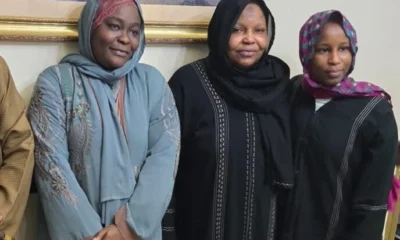
 BIG STORY3 days ago
BIG STORY3 days ago




